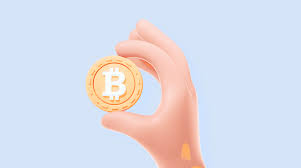KYC integration in Uniswap v4 sparks community controversy
Community Controversy Arises over KYC Integration in Uniswap v4Author: Ana LianGuaiula Pereira, Cointelegraph; Translation: Song Xue, LianGuai
The newly introduced hook provided in the open-source directory of Uniswap V4 has caused controversy within the crypto community. This hook allows users to undergo Know Your Customer (KYC) checks before trading on the pool.
A user from X (formerly Twitter) criticized the hook, pointing out the possibility of decentralized finance protocols being whitelisted by regulatory authorities:
“As I have explained in all my posts in the past year: it started with providing ‘KYC options’ for liquidity providers. Then it eventually evolved into a ‘whitelist’ database approved by regulatory agencies, stored off-chain. Then, transactions without ‘KYC’ verification will be flagged as illegal terrorist financing.”
- Tax Report Exposes Crypto Whales South Korea’s Underwater Adventure
- Apple Shocks Crypto Community MetaMask Wallet Vanishes from App Store – The Mystery Unraveled!
- Battle of the Titans Canon’s Latest Chip Manufacturing Tech Takes on ASML
Basically, a “hook” is a tool that allows developers to add custom code without changing the program’s main structure. In Uniswap V4, this hook will enable developers to utilize KYC (Know Your Customer) verification in decentralized finance protocols.
Financial institutions use KYC programs to verify customer identities and assess associated risks. One of the main objectives of KYC is to detect money laundering and terrorist financing activities.

The code for the KYC hook can be found on GitHub. Source: GitHub.
The KYC hook is an optional feature launched by community developers of Uniswap V4 in its directory. KYC verification is done through non-fungible tokens (NFTs). According to another user (User X), the hook is specifically designed for liquidity providers and could be useful for projects that must comply with specific regulatory requirements in certain jurisdictions:
“It seems you don’t quite understand how it works. Firstly, it is specific to liquidity providers. Some projects may want to operate within the legal framework. Secondly, hooks can be created by community developers. You’re attacking something that contributes more to the ‘true decentralized finance’.”
Governments worldwide are closely monitoring decentralized finance (DeFi) protocols and transactions. Recently, the Group of Twenty (G20), composed of the world’s major economies, accepted a roadmap proposed by the International Monetary Fund (IMF) and the Financial Stability Board (FSB) to strengthen cryptocurrency regulations.
Uniswap V4 introduces customizable hook functionality, expected to be launched in early 2024 but limited to entities approved by governance bodies only.
We will continue to update Blocking; if you have any questions or suggestions, please contact us!
Was this article helpful?
93 out of 132 found this helpful
Related articles
- Coinbase issues a final 30-day ultimatum demanding SEC’s response to its petition.
- GPT-4 uses Theory of Mind to play Texas Hold’em and successfully defeats humans
- The Sandbox: From Sand to Slush
- Liquity and Loom Network Soar as Shiba Memu Token Sale Keeps Riding the Wave
- Apple throws a wrench in the MetaMask game; briefly yanks it from the App Store!
- The Crypto Metaverse: Microsoft’s Gaming Adventure
- Crypto Crime Meets its Match Elliptic Joins Forces with TON Foundation for Unrivaled Ecosystem Analysis and Security






